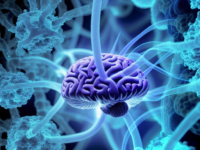The gut microbiome is a bustling community of over 39 trillion microbes, playing a crucial role in digestion, immunity, and even brain function. Among the diverse population, about 90% of gut bacteria belong to the Bacteroidetes and Firmicutes phyla. These microbes produce essential short-chain fatty acids (SCFAs) that nourish gut cells and regulate appetite hormones. A balanced microbiome is vital; disruptions can lead to conditions like type 2 diabetes, irritable bowel syndrome (IBS), and mood disorders.
Emerging research highlights the link between exercise and gut health. Regular aerobic activity increases microbiome diversity, particularly beneficial Firmicutes bacteria. Studies show that athletes have a richer gut microbiome than non-athletes, which correlates with better metabolic health. Exercise not only improves physical fitness but also enhances mental well-being by potentially altering gut bacteria that influence serotonin production—a key player in mood regulation.
As scientists continue to explore the microbiome-gut-brain axis, understanding how exercise impacts this connection could lead to innovative treatments for psychological and gastrointestinal disorders. By prioritizing both physical activity and a balanced diet, we can nurture our microbiomes for better overall health.
Read more here.



















0 Comments